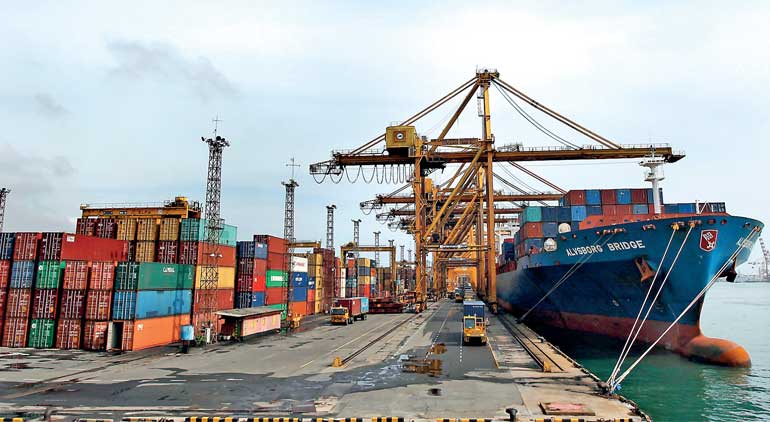Sunday Feb 22, 2026
Sunday Feb 22, 2026
Monday, 24 April 2017 00:10 - - {{hitsCtrl.values.hits}}

Participants will discuss how to make cross-border trade more efficient for Sri Lankan business at a forum organised by the International Chamber of Commerce Sri Lanka and the Global Alliance for Trade Facilitation in Colombo on 26 April.
The forum will feature speeches and discussions from the Minister of Industry and Commerce Rishad Bathiudeen and an international array of trade facilitation experts and business leaders. The forum is taking place within the context of the entry into force of the World Trade Organisation’s Trade Facilitation Agreement (TFA), a landmark global deal aimed at easing trade by removing red tape at borders.
Border inefficiencies, complex customs rules and other trade barriers can make it extremely difficult for businesses to trade internationally. Small and medium-sized companies (SMEs) especially suffer from cumbersome border procedures, as they lack the resources of larger companies to comply with the demands of public authorities.
According to an analysis by the World Economic Forum, the TFA could increase cross-border sales for SMEs by up to 80%. Other studies estimate that full implementation of the TFA could allow trade costs to fall by 13-15% in developing and emerging countries.
For Sri Lanka, full and early implementation of the TFA could have a greater impact for domestic business than tariff reforms, chiefly by providing new standards for the transparency of laws and procedures; increased fairness in border agency decisions; streamlined customs clearance procedures; and less administrative constraints on goods for import, export and transit.
The TFA’s potential to ease the movement of goods in and out of Sri Lanka largely depends on how ambitious the government will be in implementing the TFA. The Sri Lankan business community, through the International Chamber of Commerce, Sri Lanka (ICCSL) and other associations, has been a strong proponent of robust TFA implementation. “The TFA is a great opportunity for Sri Lankan business, strengthening Sri Lanka’s current trade facilitation efforts, creating jobs and making it quicker and less costly to import and export,” ICCSL Chairman Keerthi Gunawardane said. “The agreement would also allow Sri Lankan companies to better tap into global supply chains”
A forthcoming paper from the Global Alliance for Trade Facilitation suggests that trade facilitation is a critical factor in attracting high levels of foreign direct investment (FDI)-a key government priority. In a 2015 report, the Institute of Policy Studies of Sri Lanka also noted that “facilitation of trade will be key to Sri Lanka’s growth” by expanding trade and attracting FDI.
The Global Alliance for Trade Facilitation is a public-private partnership for trade-led growth. Recognising that neither governments nor the private sector can deliver on the full potential of the TFA on their own, the World Economic Forum, the International Chamber of Commerce and the Center for International Private Enterprise have joined forces with the governments of Australia, Canada, Germany, the United Kingdom and the United States to leverage business expertise, leadership and resources to support effective trade facilitation reforms measured by real-world business metrics. To ensure synergy with the activities of other international programs, the Alliance actively engages with other stakeholders such as the World Bank and International Trade Center. The Minister for Development Strategies and International Trade, Malik Samarawickrama, has previously confirmed the Government’s desire to work with the Alliance to define with Sri Lanka’s business sector, as well as current and future overseas investors, the priorities for improving the movement of goods in and out of the country.
The Alliance is working globally to ensure that traders are empowered to take proactive action to find solutions which are innovative, pragmatic and outcome-oriented. Currently, the Alliance is working in Ghana, Kenya, Vietnam and Colombia to assess private sector-driven TFA implementation measures.